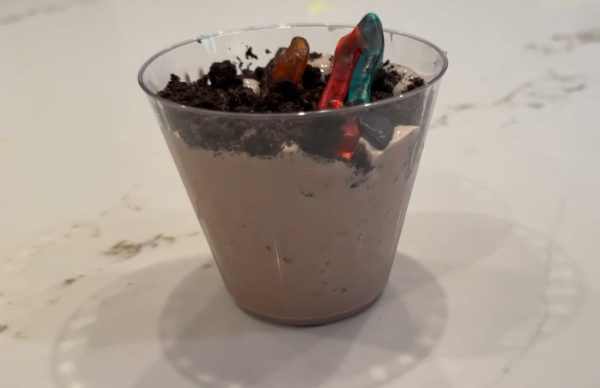Is Senioritis a real thing?
Emily Nolan, left, and Hannah Jones, right, patiently listen to the Spanish 5 listening activity. Nolan and Jones both glanced around the room while concentrating on this intricate assignment. (Broadcaster/Lindsey Voyles)
October 18, 2016
The lethargic senior fumbles into third period with droopy eyes, moaning about how far away graduation is.
They have been trapped in high school for almost four years now. They schlep through the hallways forgetful of how soon they will be saying goodbye to their classmates and friends. As they fill the graduates shoes, seniors seem to face one major dilemma: senioritis. According to Kevin Kretz, 2016 Hershey High School graduate, senioritis is a real thing that most seniors face.
“[Senioritis] started settling in after winter break,” Kretz said, “and it hit its peak sometime in March after all college acceptances were received.”
What exactly is it that makes the seniors suffer? Kretz said, “Senioritis happens because everyone thinks the point of high school is to get into college, and once the process to get into college is over, it feels like high school is no longer important.”
Yet, applying for colleges, a necessary component of the typical senior year according to some seniors, actually seems to ease the symptoms of senioritis for some.
Connor Buerk, another HHS 2016 graduate said, “Visiting schools and worrying about my college choice gave me stress outside of school and helped me realize how important my classes were.”
Daryl Dorch, 2016 HHS graduate and now freshman at the University of Pennsylvania, said, “If I hadn’t been applying to colleges, I’m pretty sure I would have stopped trying altogether in school.”
So what’s the cure to this far-reaching disorder? Perspective, according to Dorch.

Ryan Lacoe, baseball scholarship recipient and freshman at IUP said, “I knew that I’d have a large workload in college, so I wanted to create sound study habits that would lead to my success in college. I couldn’t slack off.”
Others approached the syndrome much like the common cold.
Kretz said, “Honestly, I would say I really didn’t get over it [senioritis]; it kind of just had to run it’s course until graduation finally came. My only motivation to get over it was to keep my grades up enough to be exempt from finals.”
The reality of senioritis may be debated for decades to come, but one thing is certain: its symptoms affect many at HHS. So next time you see a senior with disheveled hair and lack of motivation, know that it’s due to senioritis.



